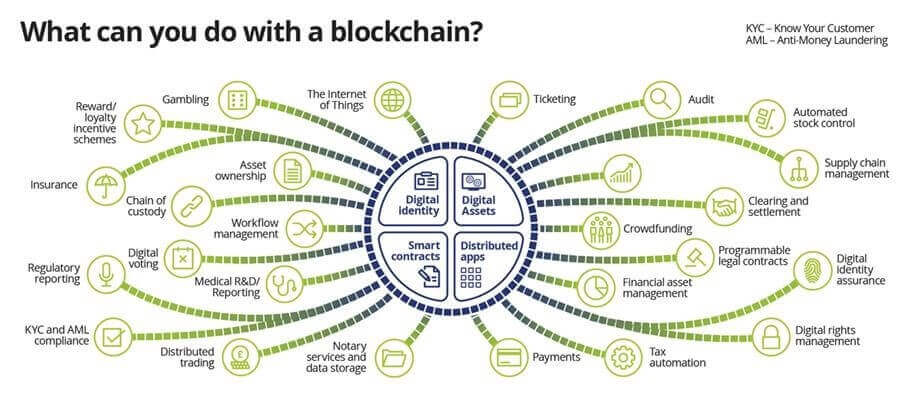Public Vs Private Blockchain: What’s The Difference?

This article will take a look at the core differences between public vs private blockchain and the different use cases that both are suited for.
Public vs Private Blockchains
Blockchain has enabled a new wave of technological progress that can disrupt many industries and systems before us. The ability to seamlessly secure data in a fully transparent and verifiable way through a decentralized system has captured the attention of people and businesses alike, prompting many to jump on board the bandwagon in search for a better alternative.
One of the most critical questions often asked is the difference between a Public and Private blockchain, and which of these two structures is most suited for a particular use case.
On one hand, transactions on a public blockchain are publicly transparent and immutable (data cannot be tampered with or altered in any way) but this could pose as a barrier for businesses that want to keep customers’ data confidential. On the other hand, private blockchains are much faster and scalable, but it is more centralized and could be prone to manipulation.
This guide will explore the differences between a public blockchain and a private blockchain, in a bid to further understand the advantages and disadvantages of both structures and how they can be used going forward.
(See more: Guide to Blockchain Protocols: Comparison of Major Protocol Coins)
Blockchain in General
Firstly, let’s start with the main characteristics of what blockchain really is. Blockchain is the underlying technology that powers cryptocurrency, representing a novel solution to secure data in a transparent and secure manner through its decentralized structure. Here’s a look at how blockchain technology works:
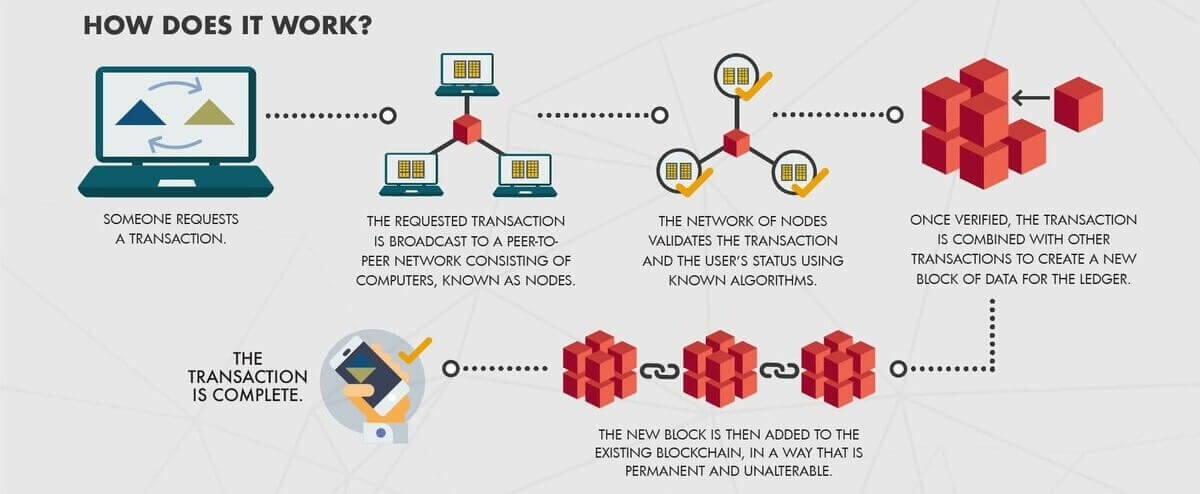
(Source: The Bernie Group)
Blockchain incorporates ‘trustlessness’ through a distributed network of computers that work towards a common set of goals, thereby eliminating any need for intermediaries or third parties. This would significantly streamline the data verification process, enabling cheap and fast transactions. More importantly, blockchain holds amazing potential for authenticating transitions without the need of a central authority.
The common features of a public and private blockchain:
- Both are an ‘append-only’ ledger, where records can be added, but cannot be changed or deleted; records are therefore called ‘immutable’.
- Both are distributed, ‘decentralized’, over a Peer-to-peer network of computers, where each network node contains a complete replica of the ledger.
- Both provide a certain level of ‘immutability’ by verifying the validity of a record until the majority agree it is a valid record and reach ‘consensus’. This further prevents tampering with the records.
(Read also: Guide to Smart Contract: What are Smart Contracts?)
The Same but Different
The main difference between a public and private blockchain is the level of access granted to participants. In the pursuit of decentralization, public blockchains are completely open and allow anyone to participate by verifying or adding data to the blockchain (a process called ‘mining’). Examples of public blockchains are Bitcoin (BTC) and Ethereum (ETH), which are created via open-source computing codes that can be inspected, verified and downloaded by anyone that wants to be a full node or miner.
Private blockchains on the other hand, only allow certain authorized entities to participate in a closed network. Also referred to as ‘Permissioned blockchain’, private blockchains grants specific rights and restrictions to participants in the network. Private blockchains are more centralized in nature since only a small group of participants control the network. Examples of private blockchains include Ripple (XRP) and Hyperledger.
You might now say: “OK, we need a Private blockchain, because we do not want everybody to read our data!”.
But there is more to it. Let’s take a look at the pros and cons of public vs private blockchains.
Advantages & Disadvantages of a Private Blockchain
Limiting access to data or certain functions – like writing or reading data – is indeed one of the major benefits of private and permissioned blockchains. Private blockchains have a different consensus mechanism compared to public blockchains and a more suited to a consortium of organizations, such as the banking industry. Here are the prominent advantages and disadvantages of a private blockchain:
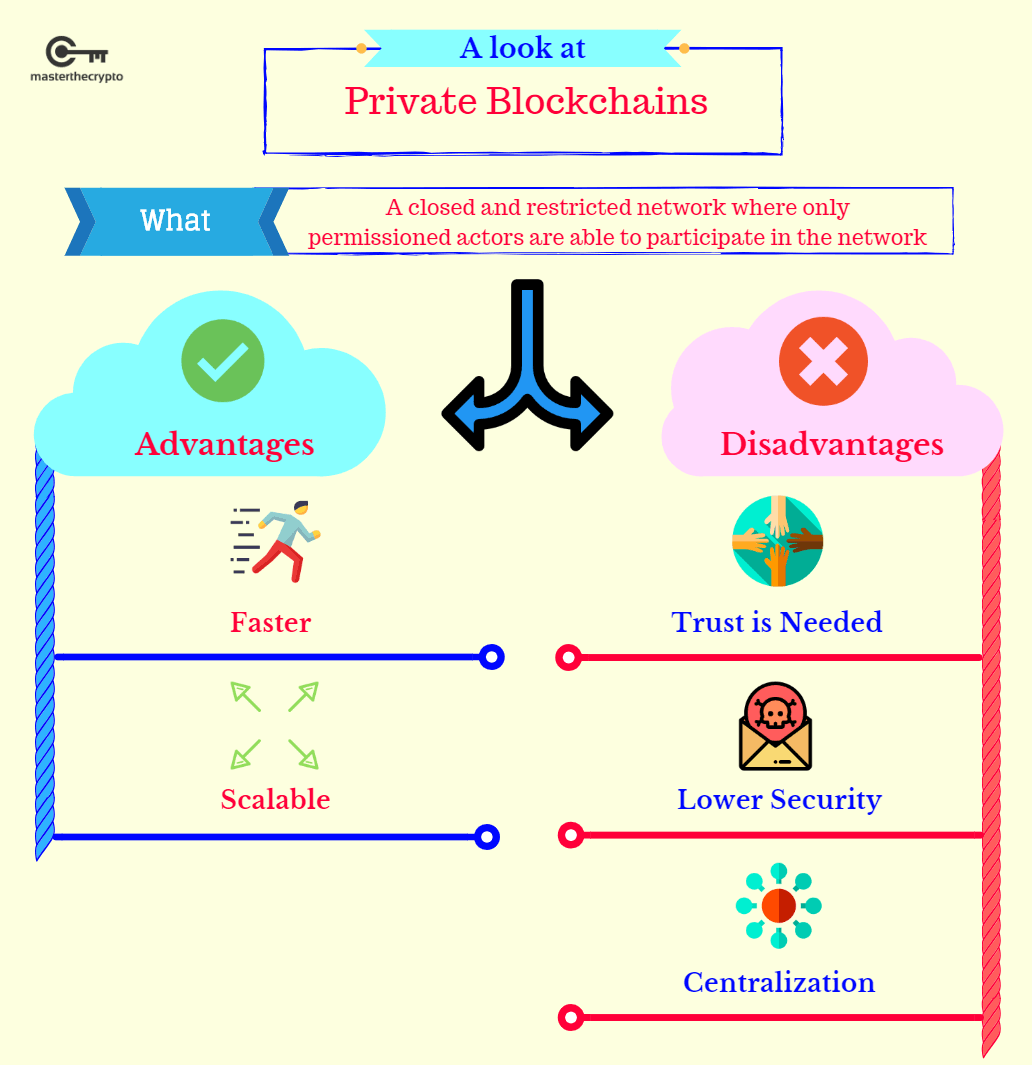
Advantages
Faster: Private blockchains can process much higher transactions per second (TPS) as compared to public blockchains, since the existence of a few authorized participants results in significantly lesser times in acquiring a consensus for the network. This allows more transactions to be processed for each block; private blockchains can process thousands or even hundreds of thousands of transactions per second (TPS), compared to Bitcoin’s 7 TPS.
Scalable: Since only a few nodes are authorized and responsible to manage the data, the network is able to support and process much higher transactions. Unlike a decentralized system where achieving consensus could take time, the decision-making process in a private network is more centralized and therefore, much faster. An analogy is that it takes much longer time for 100 teachers to mark your test paper (and agree that it is correct/incorrect) as compared to a single teacher marking it.
Disadvantages
Trust is Needed: Unlike public blockchain that doesn’t require you to trust anyone, the integrity of the private blockchain network relies on the credibility of authorized nodes. They must be trusted to verify and validate authentic transactions. Additionally, the validity of records cannot be independently verified. External actors have to trust a private blockchain network without having any form of control over the verification process. That is why there needs to be a degree of trust and reliability over authorized entities.
Security: With fewer nodes, it is much easier for a ‘bad actor’ to gain control of the network and endanger the entire network. A private network is much more vulnerable to risks of hacks and data manipulation
Centralization: The private network must be built and maintained by the project (or business) or a consortium of industry players, which include maintaining a complex Identity and Access Management (IAM) system for the users. This often leads to centralization, which is also something we specifically try to avoid with blockchain!
(See also: Crypto Beginners Guide: 5 Things Crypto Newbies Should Know)
Advantages & Disadvantages of a Public Blockchain
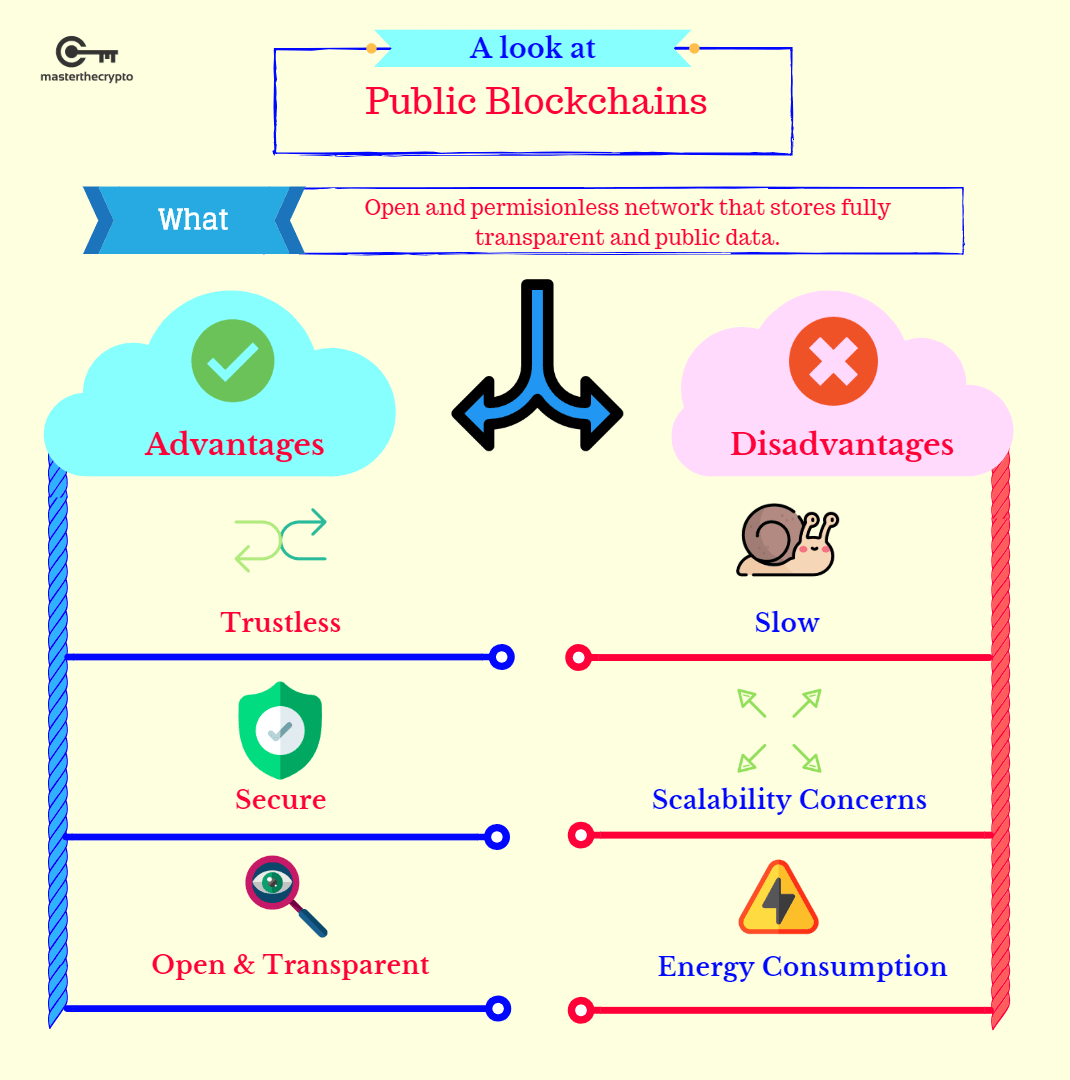
Advantages
Trustless: The objectives of public blockchains since the start was to eliminate intermediaries of any form and more importantly, it seeks to remove the trusts placed on them. In fact, participants in the network shouldn’t even need to trust each other for the network for transactions to be processed and secured. Public blockchains are trustless, since everyone is incentivized to do the right thing for the betterment of the network.
Secure: It follows that the greater the decentralization and active participation, the more secure a blockchain will be. With more nodes in the network, it will be much harder for any bad actors to attack the ecosystem. In a public blockchain network, anyone can participate by being a full node or miner and contribute to the security of the system. It is practically impossible for ‘bad actors’ to collude and work together to gain control over the consensus network
Open & Transparent: All data related to transactions are open for the public to verify. The transparency of a public blockchain is perhaps a major feature that attracts a wide array of use-cases, from voting to financial transactions. Additionally, anyone can verify the validity of transactions and the data.
Disadvantages
Slow: It is no surprise that public, permissionless blockchains like Bitcoin are extremely slow. Bitcoin can process 7 TPS while Ethereum can do 15 TPS. It is no match for a centralized payment processor such as Visa can do 24,000 TPS. A public blockchain is slow since it takes times for the entire network to reach a consensus on the state of transactions, via consensus mechanisms such as Bitcoins Proof-of-Work (POW). There are also limits on how many transactions can fit into a block and the time needed to process a single block.
Scalability Concerns: Currently, public blockchains cannot compete with traditional systems that can process huge amounts of transactions. In fact, with more participants and usage, the slower a public blockchain gets since the massive number of transactions will clog the network. However, there considerable progress in the cryptocurrency space that aims to address the scalability issue. Various technologies and innovations are being conceived and implemented to significantly enhance the scalability of blockchains. An example is Bitcoin’s Lightning Network.
Energy Consumption: Bitcoin’s consensus algorithm – Proof-of-Work – uses a significant amount of electrical resources to function, which has raised concerns on the environmental front. In fact, Bitcoin uses as much electricity as the country of Ireland! However, there are many other consensus mechanisms that try to achieve network consensus without using tremendous resources such as Proof-of-Stake (POS).
(Read also: Guide to Market Capitalization: Everything You Need to Know About Market Cap)
Private Data, Personally Identifiable Data & Public Blockchain
Privacy concerns are a major consideration that needs to be addressed. Here’s a common question:
“So, what about our confidential data? We need a Private blockchain then, right?”
Let’s be 100% clear: private or personally identifiable data must not be stored in a Public blockchain! Even when encrypted. It is not a good idea. It will be public forever and chances are encryption will be broken at some point in the future.
It’s All About Trust
Most people want to use blockchain to create trust for securing their data and processes. Public blockchains provide a higher level of trust because of the larger number of nodes that are operated by autonomous parties and can be independently verified. And most use cases do not require private data to be stored on a public blockchain.
Creating trust is achieved by anchoring the data and executing the processes on a blockchain. With anchoring, the data is transformed by converting the original input into an encrypted output with a fixed length. After the data is ‘hashed’, it has to be digitally signed by transacting participants before the transaction is broadcasted and stored on the blockchain. By using anchoring, the authenticity of the data can be guaranteed and its authenticity can be easily proven. Participants can also be sure that the execution of the entire hashing and storing process is reliable.
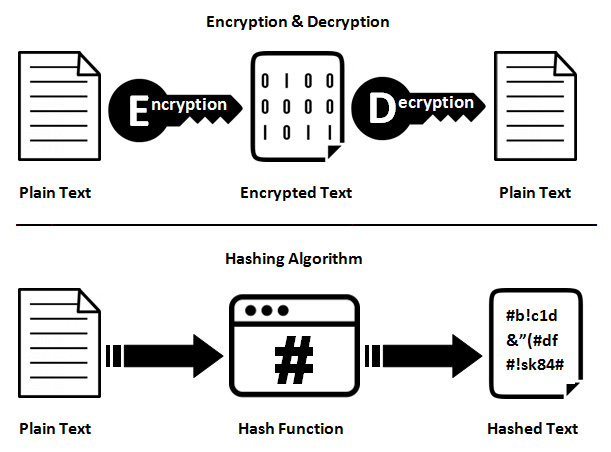
(See more: Guide to Valuing Cryptocurrency: How to Value a Cryptocurrency)
So, a Private or a Public Blockchain?
We believe that the majority of the use cases, by far, could very well use a public blockchain and do not require the restricted access of a private blockchain. The premise of decentralization in offering strong features of transparency, security, and cost-efficiency is the main goal of blockchain technology.
In some other cases, a hybrid solution consisting of a combination of private and public blockchain, a private database or an offchain storage combined with a public blockchain can also represent viable solutions for businesses or consortiums.
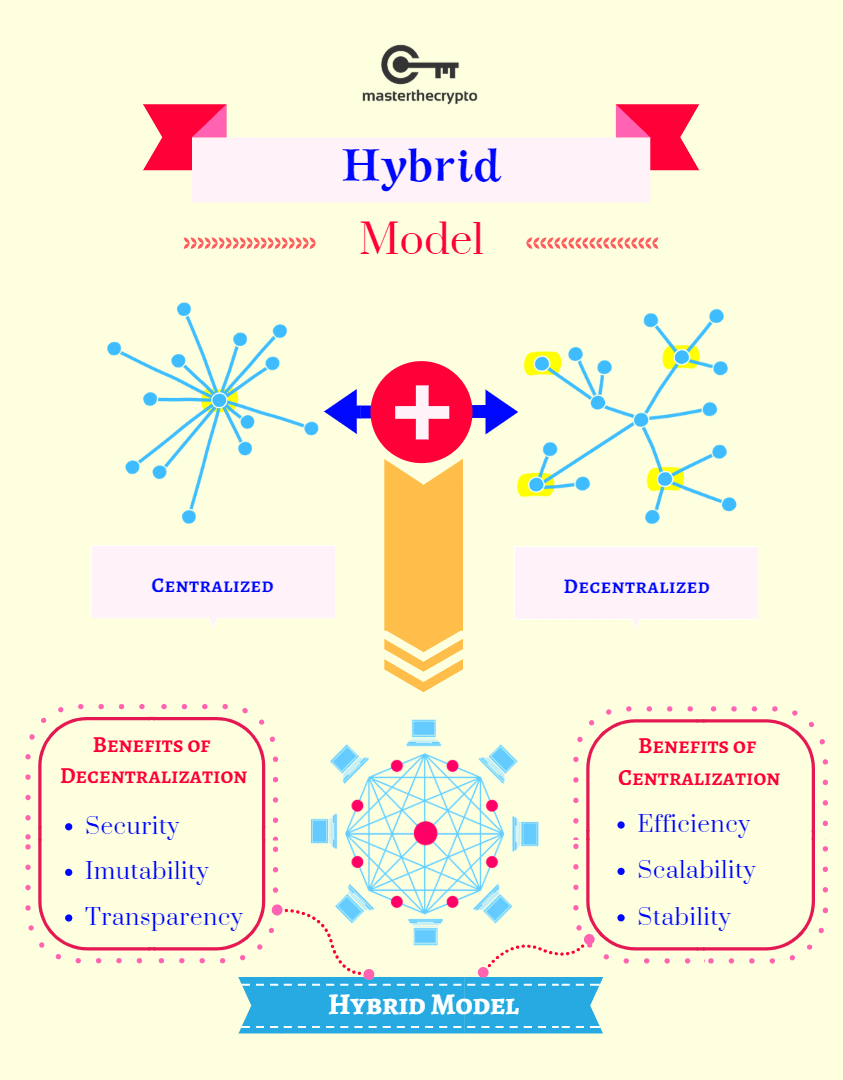
In a bid to bring out the best from both worlds, some projects are working towards a hybrid model that uses a decentralized structure combined with centralized elements. They would argue that a hybrid model would benefit from the security and transparency of a decentralized structure, whilst facilitating scalability and efficiency to compete with conventional systems in the real-world.
But in the end, it all depends on the objective and goals of for the use of blockchain technology.
(You might also be interested in Will A Crash in Bitcoin’s Price Lead to Its Demise?)
Beneficial Resources To Get You Started
If you’re starting your journey into the complex world of cryptocurrencies, here’s a list of useful resources and guides that will get you on your way:
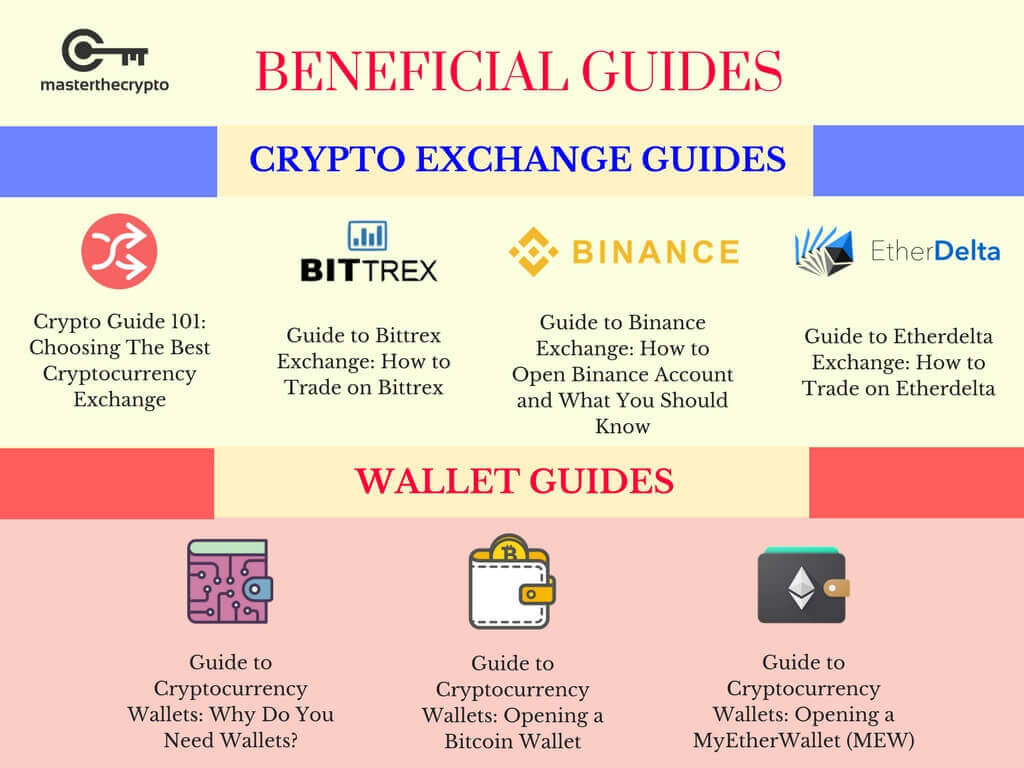
Trading & Exchange
- Crypto Guide 101: Choosing The Best Cryptocurrency Exchange
- Guide to Bittrex Exchange: How to Trade on Bittrex
- Guide to Binance Exchange: How to Open Binance Account and What You Should Know
- Guide to Etherdelta Exchange: How to Trade on Etherdelta
- Guide To Cryptocurrency Trading Basics: Introduction to Crypto Technical Analysis
- Cryptocurrency Trading: Understanding Cryptocurrency Trading Pairs & How it Works
- Crypto Trading Guide: 4 Common Pitfalls Every Crypto Trader Will Experience
Wallets
- Guide to Cryptocurrency Wallets: Why Do You Need Wallets?
- Guide to Cryptocurrency Wallets: Opening a Bitcoin Wallet
- Guide to Cryptocurrency Wallets: Opening a MyEtherWallet (MEW)
Read also: Crypto Trading Guide: 4 Common Pitfalls Every Crypto Trader Will Experience and Guide To Cryptocurrency Trading Basics: Introduction to Crypto Technical Analysis.
Enroll in our Free Cryptocurrency Webinar now to learn everything you need to know about crypto investing.
Get our exclusive e-book which will guide you on the step-by-step process to get started with making money via Cryptocurrency investments!
You can also join our Facebook group at Master The Crypto: Advanced Cryptocurrency Knowledge to ask any questions regarding cryptos!

I’m Aziz, a seasoned cryptocurrency trader who’s really passionate about 2 things; #1) the awesome-revolutionary blockchain technology underlying crypto and #2) helping make bitcoin great ‘again’!
The post Public Vs Private Blockchain: What’s The Difference? appeared first on Master The Crypto.

